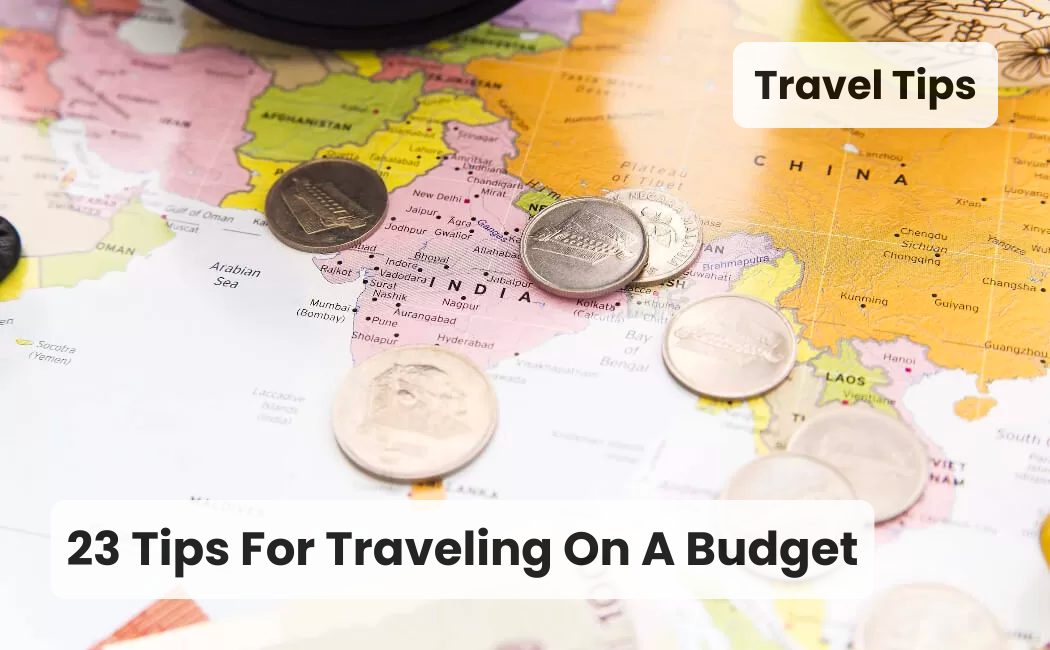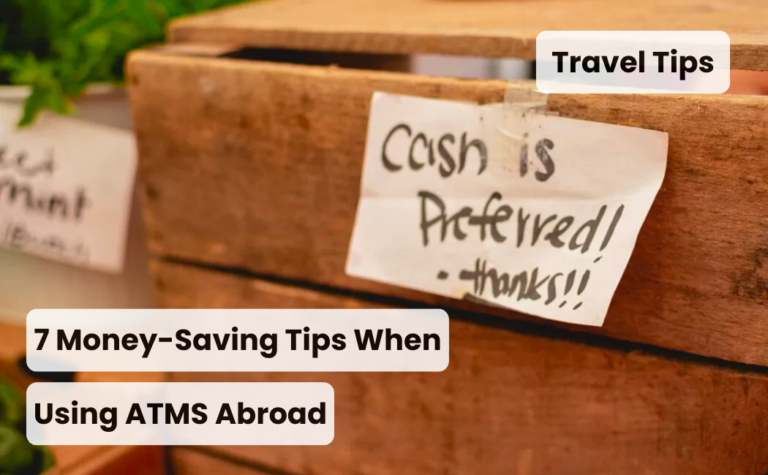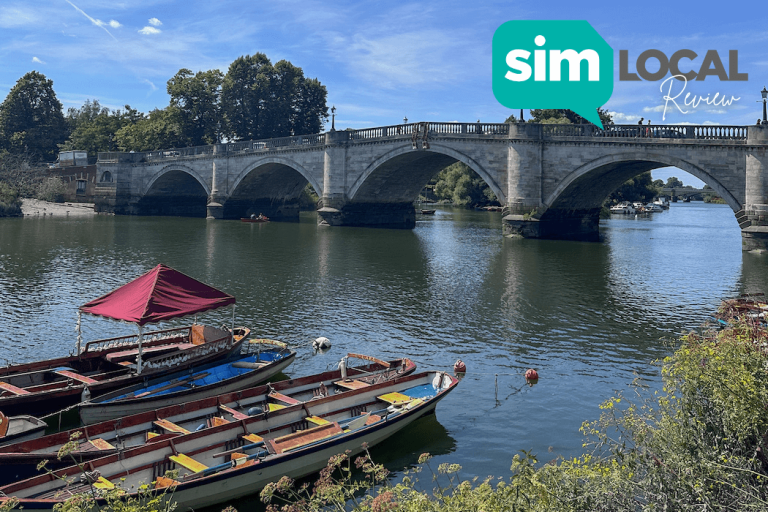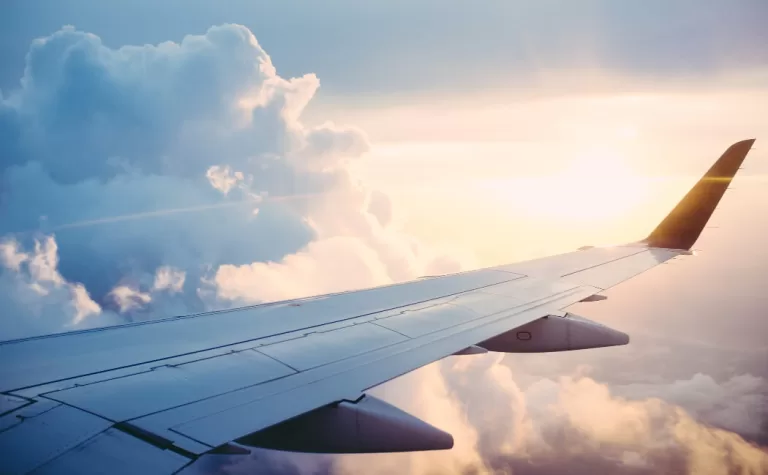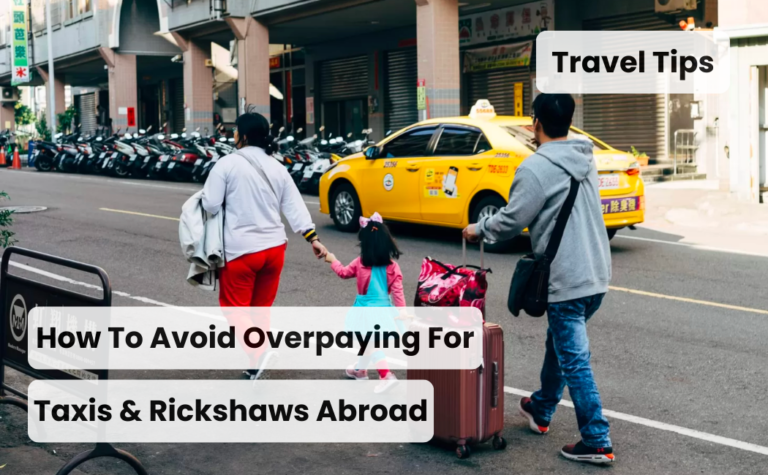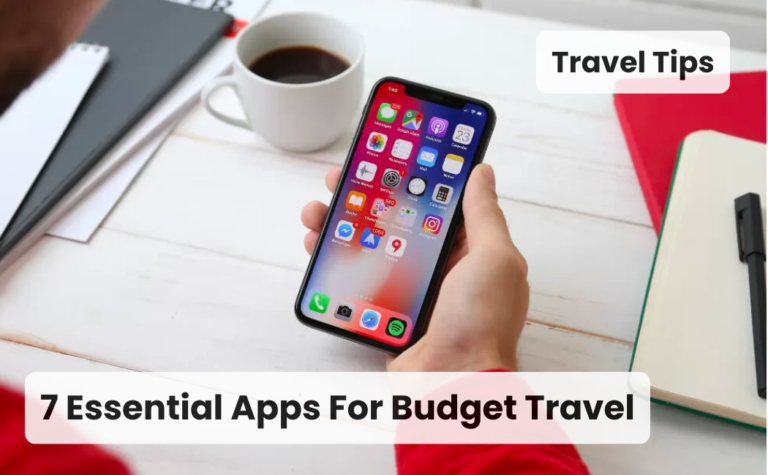The 23 Best Tips For Travelling On A Budget
I am on a mission to destroy the myth that travelling has to break the bank. This post contains the 23 best hacks and tips for travelling on a budget, to help you maximise your travel experiences, whilst minimising your expenses.
This post may contain affiliate links. This means that I earn a small commission if you purchase through a link on my site. Don’t worry, this is at no extra cost to you.
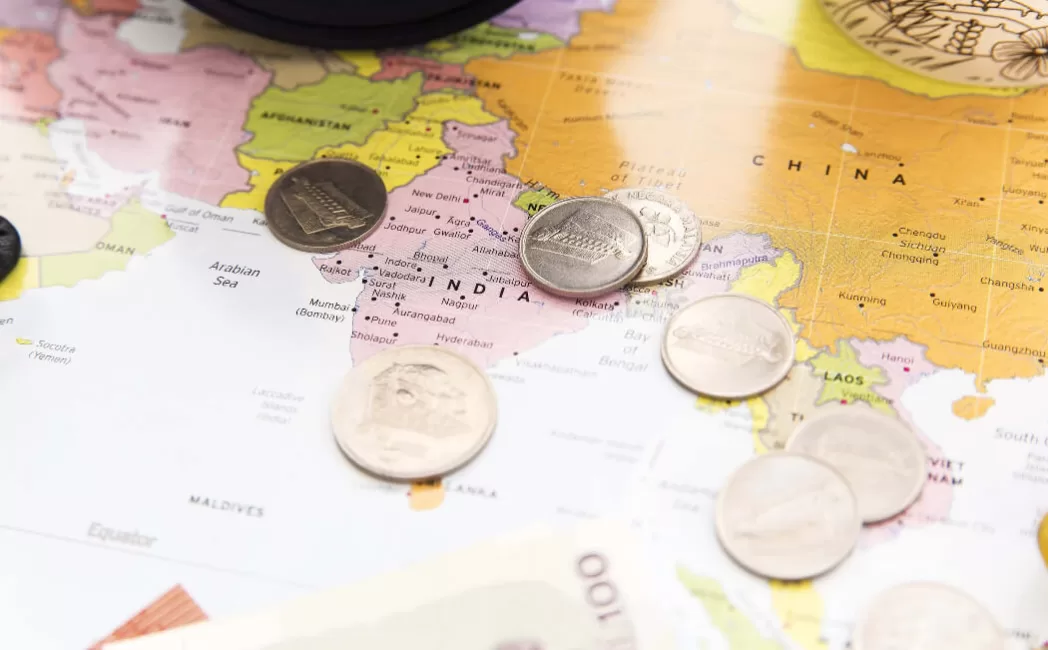
We’ve all been there, a great trip planned but the unavoidable money worries start to creep in. Will my money last? Do I have enough for a flight home? Will I be ripped off because I’m a tourist?
I had the same worries before embarking on my trip to Asia, as it was a spur-of-the-moment idea and I didn’t have much in savings. I never wanted to compromise on experiences, so it was about being smart, not frugal.
I’ve read a lot of vague posts about saving money whilst travelling, but this is not one of them. I want to share with you in the utmost detail all of the hacks and tips I’ve learned along the way.
Whether you’re preparing to embark on your first trip, or you’re a seasoned traveller, this post will detail the 23 best tips to help you save money and travel cheaply, updated for 2024.
General Tips
The tips below won’t always make your life easier, but if you are willing to compromise on convenience and comfort sometimes, then your money will go a lot further. Flexibility is key here.
After all, travelling is about getting out of your comfort zone. So, come with an open mind and embrace the sweaty buses, sleeping in hammocks, and mosquito bites – no great story ever started with an all-inclusive resort!
1. Visit in low-season
This has got to be the first tip for saving money whilst travelling, as it influences nearly everything else below.
Unsurprisingly, things are cheaper during the low season and more expensive during the peak season. More tourists means more demand and more demand means higher prices.
In my opinion, this is not just a money-saving tip, but a tip to have a better experience in general. Hoards of tourists and overrun activities can really take the charm out of a place.
Usually in low season, you have the rain to contend with, but this is all part of the fun.
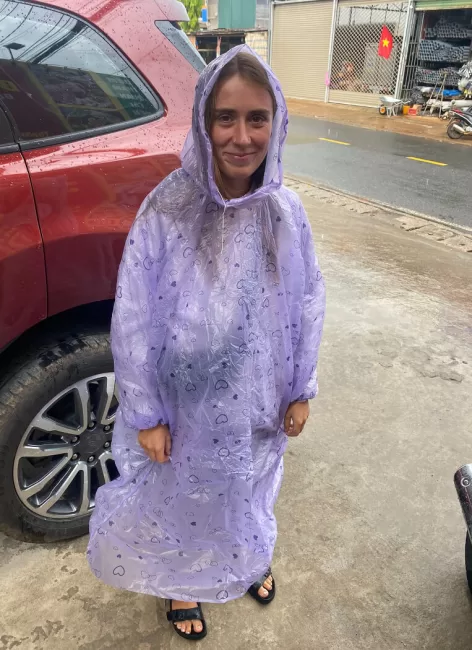
2. Booking things in advance isn’t always cheaper
I’ve read a lot online that booking things in advance is always cheaper, but in my experience, this doesn’t apply to everything.
With things like flights and transport, booking in advance usually works out cheaper. However, if you are travelling in the low season, accommodation and tours usually don’t sell out, so don’t need to be booked in advance.
You can simply turn up on the day, compare, and negotiate the price, which is a great way to save money.
3. Avoid ATMs that charge
Another one of the best tips for travelling on a budget is to avoid ATMs that charge a withdrawal fee, as these fees can easily add up.
In most places I have visited, there is usually a bank with free or cheaper withdrawal fees. However, in the situation that there is not, I would recommend drawing out more money and keeping half somewhere safe.
I have written a pretty detailed post here on money-saving tips when withdrawing money and using ATMs abroad.
4. Make use of budgeting and reward program apps
A top tip for travelling cheaply is to take advantage of some of the fantastic budgeting apps to track your spending and stop unnecessary overspending.
Furthermore, making use of reward programs for discounts is also another great way to save money travelling. You can check out my full post about the best apps for budget travel below.
4. Buy a local SIM card but not in the airport
One of the best tips for saving money whilst backpacking is to buy a local SIM card. These are usually under $10 for the entire month and can be bought nearly everywhere.
Even if you think you have a good deal with your home provider, the signal abroad may be basically non-existent. A local SIM card not only saves you money, but is necessary for safety reasons too.
If you can avoid buying one in the airport, then these are always the most expensive. In Asia, you can usually grab one in 7/11.
5. Loyalty is rewarded
This is my absolute favourite tip for travelling on a budget. If you have a particularly friendly taxi driver who offers you a fair price, then take their number and use them whilst you stay in the area.
In my experience, most locals appreciate this loyalty and it saves you from having to negotiate a fair price with someone new each time.
In Munnar, India, we went with the same rickshaw driver all week and on our final night, he took us to a botanical garden completely free of charge as a thank-you for sticking with him.
Let me make it clear, this is not about showing loyalty and expecting a discount. But, if you received particularly good service, then stick with them and you might save some money out of it.
Flights and Luggage
6. Use Skyscanner but also check with the airlines directly
I’m sure most people have already heard of Skyscanner, which is a great way of finding and comparing flight prices so you can travel cheaply and save money.
However, after finding a flight on Skyscanner, it is always worth going to the airline directly and comparing the prices, as sometimes booking through the airline works out cheaper, especially for connection flights.
When flying, try to avoid the weekends as weekday flights are usually cheaper.
7. Travel light
This is one of the best tips for travelling in general, as a smaller, lighter bag will make your experience so much more enjoyable.
I made the mistake of taking an 80-litre bag TWICE and I will tell you now, you don’t need so much stuff. If you can, try and fit your stuff into the maximum carry-on bag size.
This means that you will save loads of money on luggage when flying, as a $40 flight isn’t so cheap when your bag costs an additional $50.
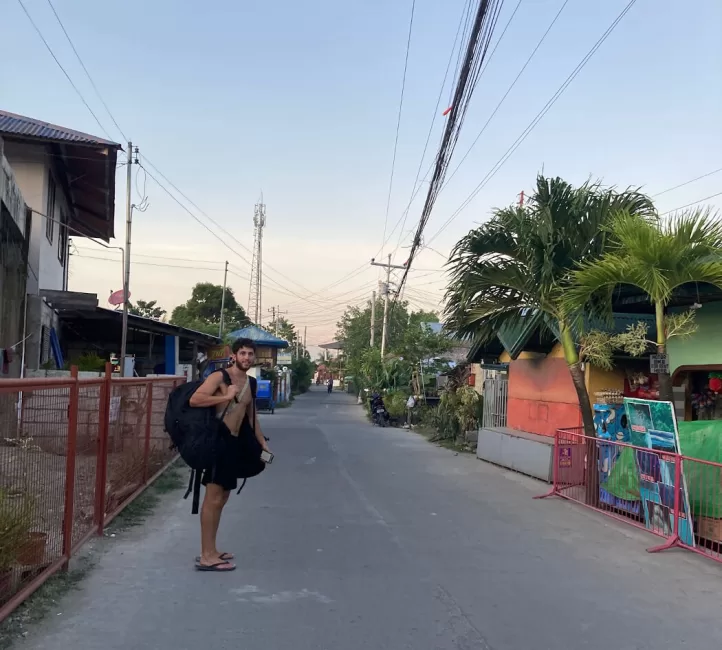
8. Leave your big bag in a hostel whilst flying
If you do decide to take a big backpack with you, then this tip will still help you to save money by avoiding luggage fees.
I leave my big bag at any opportunity I get. If I know I need to return to a place, I will speak to the hostel I am staying in and ask to store my bag for a couple of weeks (usually free of charge). A hostel near the airport usually works a treat.
This means that if I take a flight, I do not need to pay for luggage. For example, in the Phillipines, I left my big bag for over a month in a hostel in Cebu whilst travelling around and then picked it up when we had to fly out of Cebu when leaving.
9. Never purchase luggage through a third-party provider
This is one of the most important tips for travelling on a budget. Never purchase luggage through a third-party provider.
When using websites such as Mytrip or Trip.com, they make most of their money through people purchasing luggage which is why it is so expensive. To save money, always purchase your luggage from the airline directly.
After receiving your booking reference from the third party, download the airline app and log in – you can purchase luggage here for a fraction of the price. Luggage for domestic flights is never much more than $20.
Accommodation
Typically, if you are looking to save money whilst backpacking, then staying in hostels is your best bet. Not only are they super social and fun, but very cheap.
However, if you are a couple or a group, staying in a private room sometimes works out cheaper. I found in Asia it was cheaper for us to stay in a private room, but in Central and South America dorm rooms were way more cost effective.
Below is the view from my hostel in Salento, Colombia, for just $10 a night.
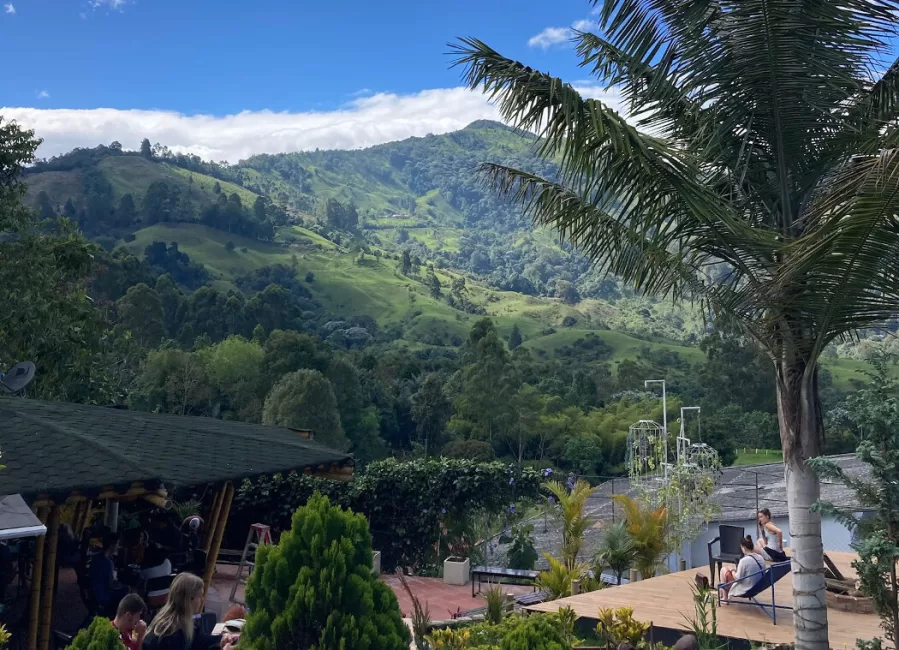
10. Book one night of accommodation and then negotiate when you arrive
Another great way to save money whilst backpacking, is to only book one night of accommodation and then negotiate the price when you arrive.
Of course, this is something that can only apply in the low season and you have to use your common sense a little, but if you can see that a hostel has availability, then turning up and negotiating shouldn’t be a problem.
When booking through third-party sites, these sites will always receive a commission. If you book just one night and then talk directly with the property once you arrive, you can usually strike up a deal and get a price excluding the online booking fee.
11. Book way in advance if you will be staying over a national holiday
If you are travelling on a budget, then this is one of the most important tips. As soon as you know you are going to be at a destination over a national holiday, book your accommodation ASAP.
I made this mistake in both Peru and Mexico for Independence Day and in the Philippines over Easter (Semana Santa). In Peru, I paid $8 for a hostel bed on either side of Independence Day, but over $50 on the day itself.
Prices increase tenfold over national holidays so booking as soon as you can is the best option to save money whilst backpacking.
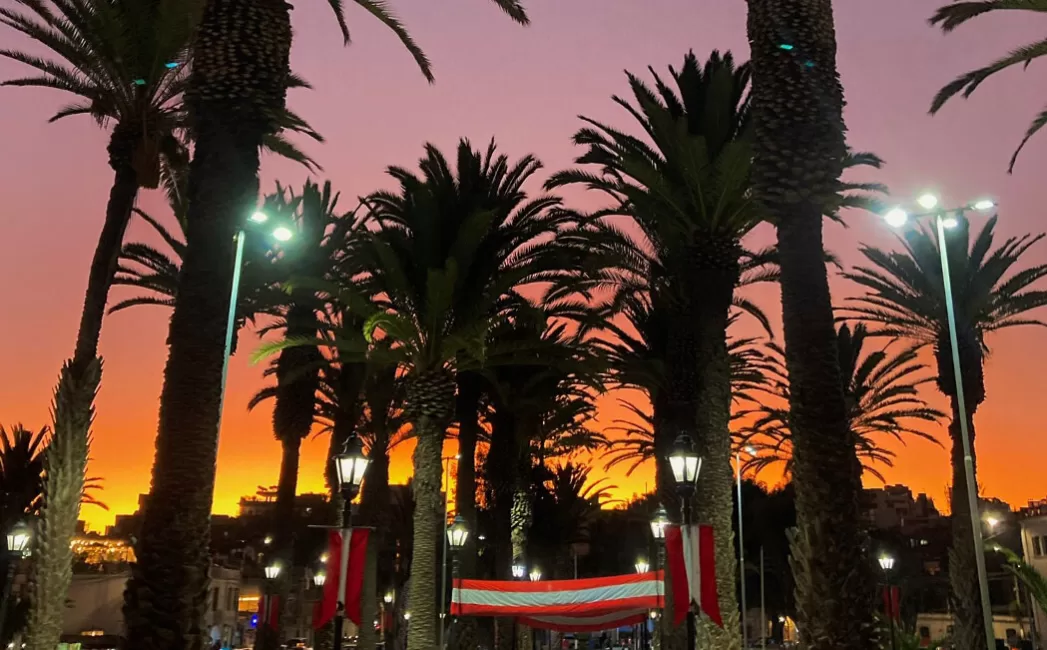
12. Free accommodation in exchange for work
If you’re looking for cheap ways to travel, then volunteering your time and skills in exchange for free accommodation is a great tip to save money.
Websites such as Workaway and Worldpackers offer opportunities in loads of different sectors all over the world. For a few hours of work a day, you can get free accommodation and sometimes meals too.
Most places prefer a commitment of at least a month, but sometimes it can just be a few days. In Costa Rica, I stayed with a family for 5 days and helped them with their English, in exchange for free accommodation and 3 meals a day.
If you stayed in a hostel and liked it, it is always worth asking the manager if they offer any work opportunities for free accommodation.
Transport
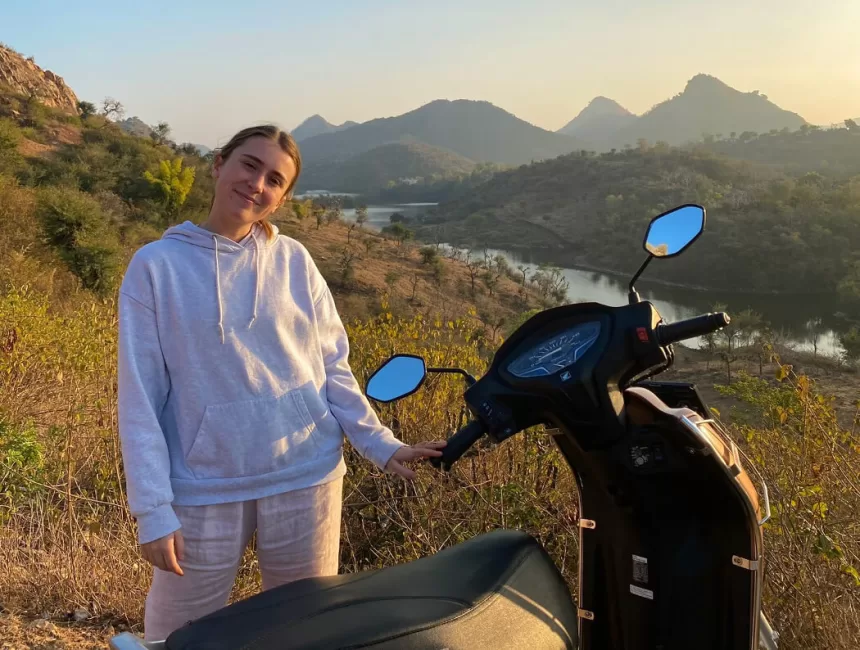
13. Avoid flying as much as possible
For those looking to travel cheaply, it is best to avoid flying as much as possible, as flights and luggage prices can really add up.
Try to take advantage of the overnight buses, ferries, and trains, which are usually significantly cheaper than flying and just as comfortable. In Asia, you can use websites such as 12Go Asia and Bookaway to book in advance.
You also save a night of accommodation so it’s a win-win on the budget front.
To save money, I always try to avoid flying domestically. Below is me on a 35-hour train from Agra to Goa in India. I saved over $100 so it was worth it in my eyes.
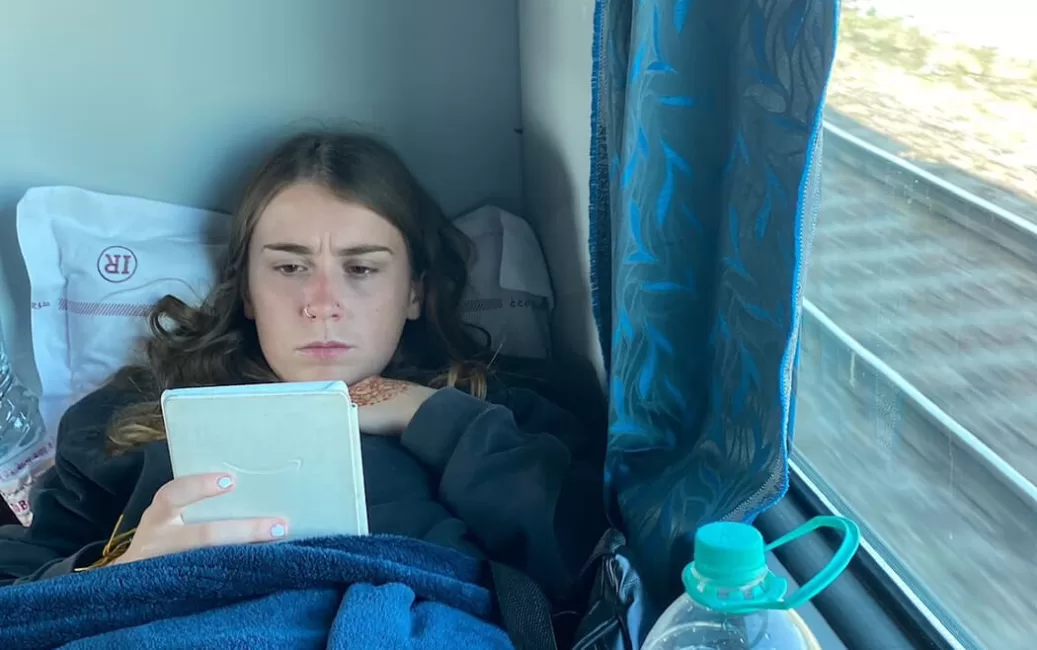
14. Use public transport
On the same note, using public transport is a great way to save loads on overpriced taxis and is (nearly always) super reliable.
Most places I have visited have great transport links. There is nearly always a bus going where you want to go – especially outside airports, where there is usually some sort of shuttle to the centre.
You’ll no doubt have delays and crowded hot buses at times, but if you want your money to go further, then you’ll have to sacrifice a little comfort every now and then.
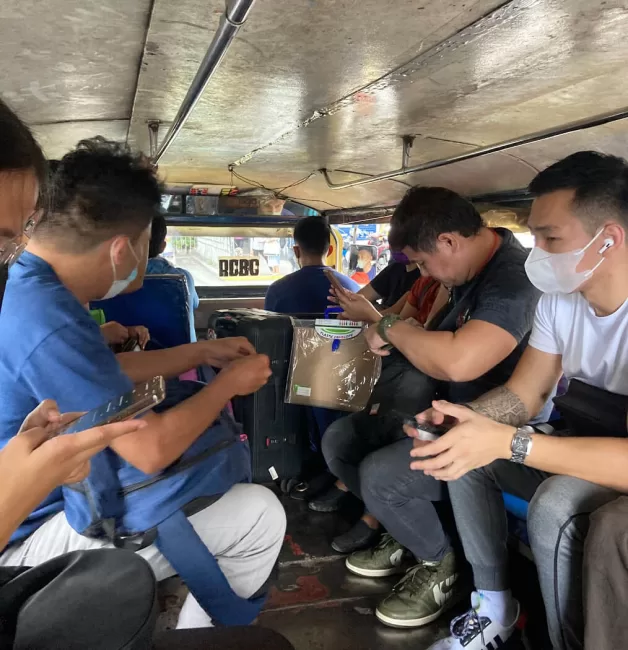
15. Walk, walk, walk
This is one of the best tips not just for travelling on a budget, but for life in general. Walk as much as you can!
My rule of thumb is that if it is under a 30-minute walk, I will walk it for certain. Anything more than that I will judge the ‘walking conditions’ on the day, but try to walk if it is under an hour.
In Asia especially, you can quite easily fall into the trap of getting rickshaws everywhere because they are relatively affordable – but even a cheap rickshaw costs more than a free walk!
In my opinion, walking everywhere gives you a better feel for the place and you can explore streets you might have missed and discover new places on the way.
16. Always haggle with taxi or rickshaw drivers
If public transport and your legs have failed you, then always try to haggle with the taxi drivers to save money whilst travelling.
It is great to have the journey time in your head and a rough idea of how much it should cost. You can even ask around to try and gauge what the average price is.
Of course, you will never pay like a local for a journey but try to avoid getting ripped off as much as you can. Unfortunately, taxi drivers do have a bit of a bad reputation for taking advantage of tourists.
You can check out my separate post here for tips to avoid getting (massively) ripped off by taxi and rickshaw drivers.
17. Hire a moped/scooter
If you’re looking for cheap ways to travel, then hiring a moped or a scooter for those who can drive would be one of the best tips.
Not only does it give you so much more flexibility, but the rental price per day and petrol are very cheap. Having your own scooter also gives you the freedom to explore further afield and opt for DIY tours which can save you loads.
In Central and South America, I accessed everything with public transport, but in Asia, I would have been lost without a scooter.
Tours
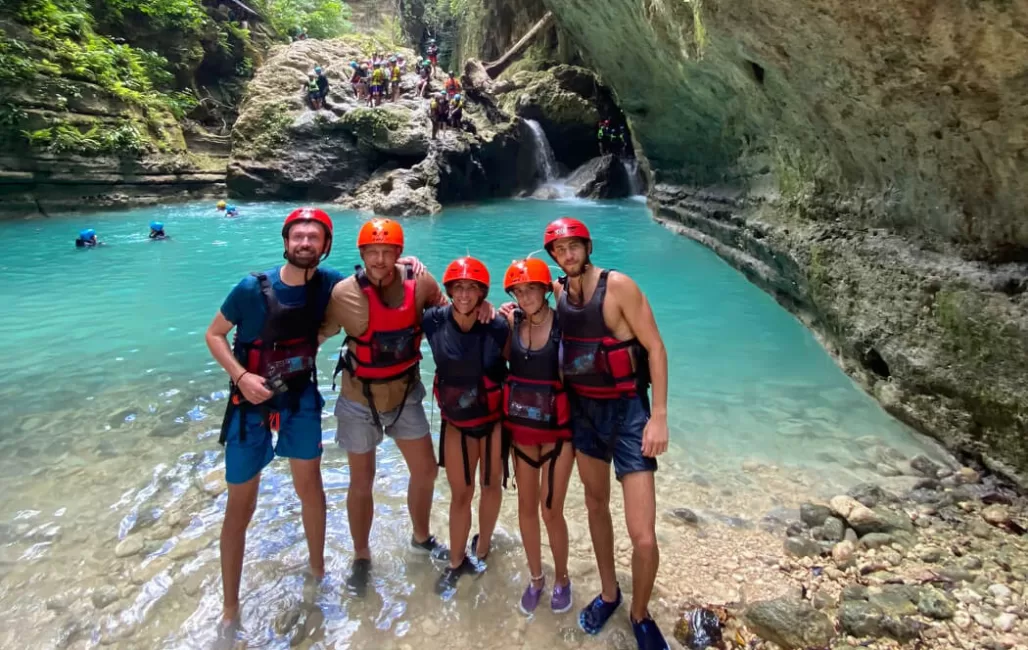
18. DIY tours
One of my favourite tips for travelling on a budget, is to do DIY tours instead of organised tours, as they are usually a fraction of the price, and in my opinion, much more fun.
Having the freedom of a scooter is great but most attractions/tours can be accessed with a little planning and public transport.
When you book a tour through an agency, it is mainly the transport there and back that you are paying for. Usually, you have to pay the additional entrance fees on top of what you have already paid for the tour.
Cutting out the middle man not only saves you loads of money but also gives you so much more freedom as your day is not determined by someone else’s schedule.
19. If you do book a tour, try to get one with lunch included
Sometimes no matter how you look at it, an organised tour is cheaper and/or way more convenient. If you do go with this option, then another top tip for saving money is to book one with lunch included.
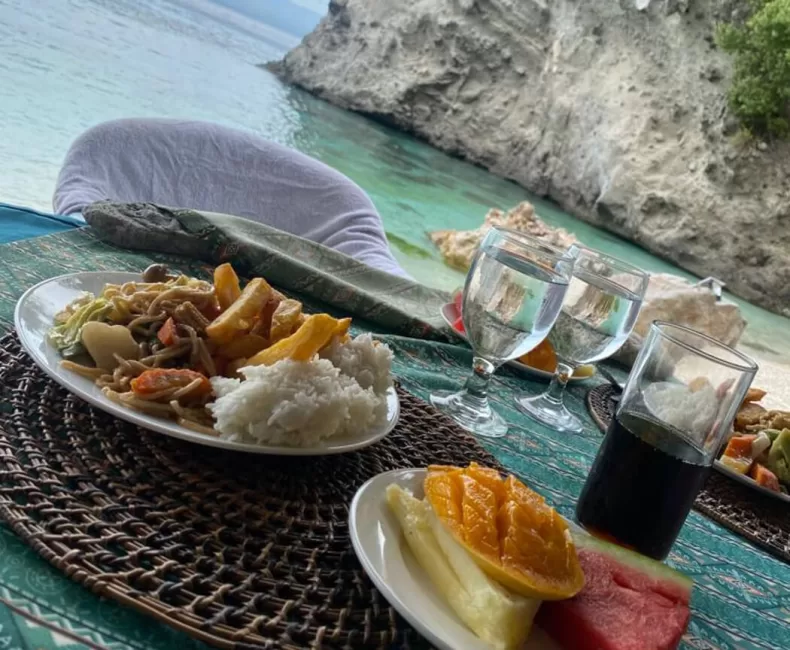
20. Haggle with the tour agencies
My final tip for booking tours whilst travelling on a budget is to haggle with tour agencies. If there is a lot of competition with many agencies offering the exact same tour, then you are in a good position to negotiate a bit.
Usually, the bigger the group, the better the chance to get a tour discounted. So, talk to people in your hostel and try to gather a group together.
Food

21. Eat like a local
Another great tip for travelling on a budget is to eat like a local and avoid the super touristy restaurants.
Asking for recommendations from the locals is great and does not only save you money but also means that you get to try some more authentic restaurants and dishes.
Always remember that, when you are in a particularly touristy area, you are usually paying for the view or the prime location, and not always the food.
Distance yourself a little from the main tourist hub or attractions, and you will find just as delicious food at a much more affordable price.
22. Book accommodation with a kitchen / free breakfast
Choosing accommodation based on whether they have a kitchen or free breakfast available is a great way to travel cheaply whilst backpacking.
If a hostel has a kitchen, and even better if it is stocked with condiments, then you can save loads of money by cooking in.
I personally love going to supermarkets and local markets in new countries. Pesto pasta goes a long way too!
Also, if you can book accommodation with free breakfast or coffee, then this sets you up well for the day. The more points you get on Booking.com through bookings, the more you unlock things like room upgrades and free breakfasts.
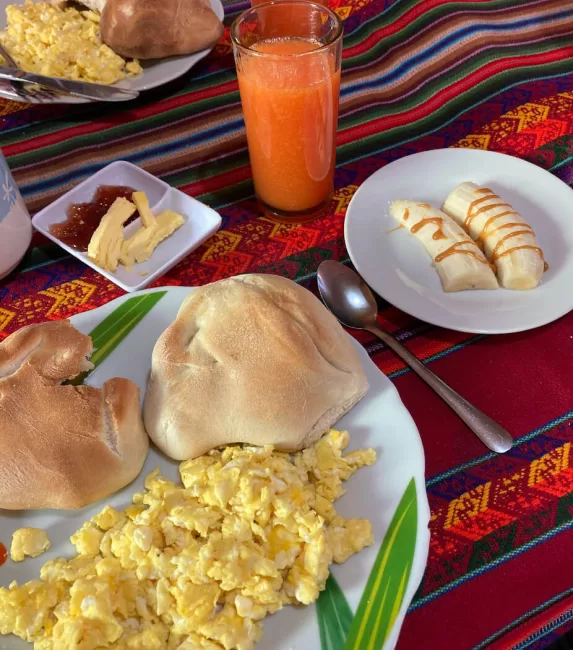
23. Experiment with street food
The final top tip for travelling on a budget is experimenting with street food, which in my experience has always been delicious and super affordable.
You will eat some of the best dishes you have ever tried from a little stall, sitting in a plastic chair on the side of the street.
If you’re a bit apprehensive, then perhaps just try to avoid meat. But in general, don’t overthink it. I’ve had food poisoning a couple of times whilst travelling, and neither was from street food!

Final Thoughts
Travelling is one of the most liberating and eye-opening things you can do, so make the most of every moment and don’t sweat the small stuff.
Don’t be too harsh on yourself when sticking to a budget and make sure to take advantage of every opportunity that is thrown at you – money will always come back, but time will not!
As I said at the beginning, these tips are about being smart, not frugal. Avoiding overpaying when you don’t need to is great, but putting back into the local economy and being generous is important too.
If you felt the service was good, then be sure to tip. Use the money that you saved to buy some local handicrafts and support small business owners. Give spare change to homeless people on the street.
Personal safety has to be a priority too. If it is late or the route seems sketchy, then pay the extra money for a cab. Your health and safety is priceless, so trust your instincts always.
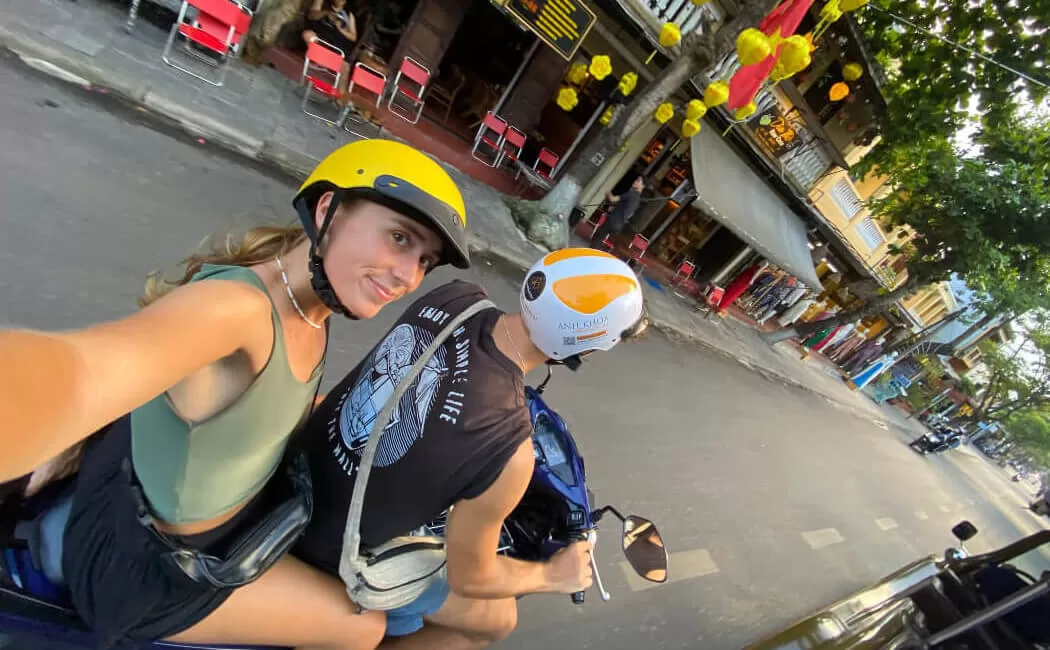
This post has detailed the very best money-saving tips for those travelling on a budget, updated for 2023. I hope these tips will help you to maximise your travel experiences, without breaking the bank!
If you liked this post and you’re after more money-saving tips, then feel free to check out –

